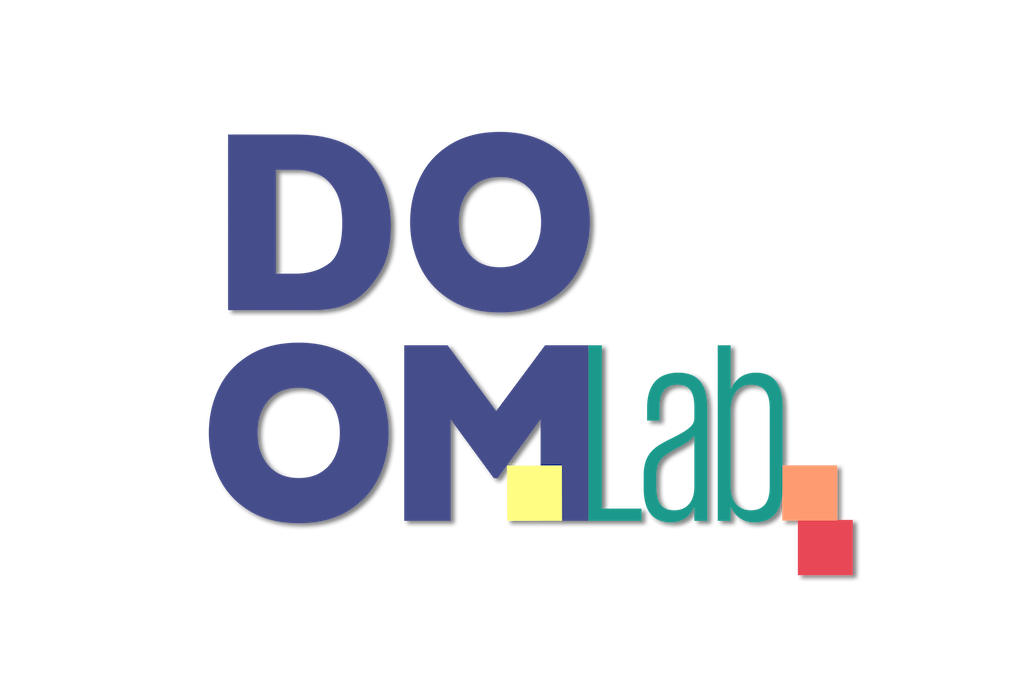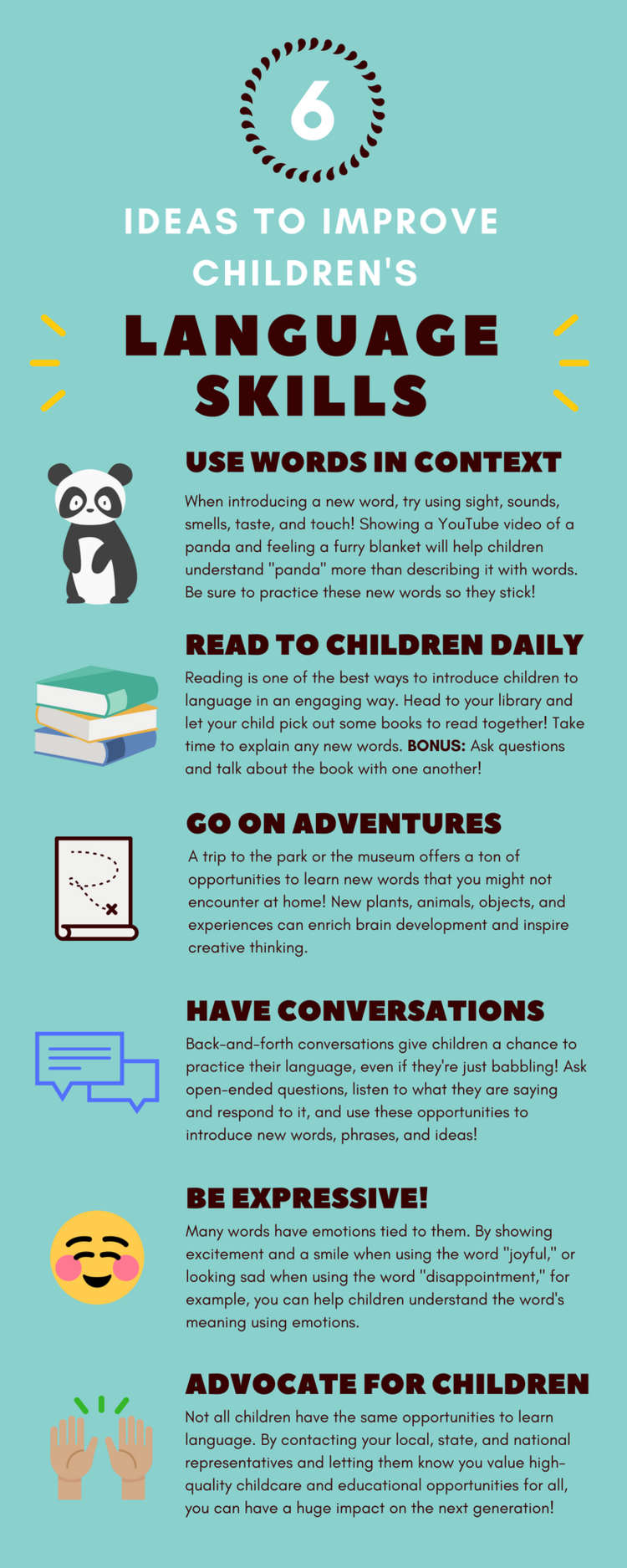How to Enhance Language Development in Babies and Toddlers
One of the things I’m usually asked about as a developmental psychologist is if I think people are screwing up their kids. It’s usually a joke, but I do think there is a ton of confusion about the “best methods” of parenting and what parents can do to put their child on a healthy path. While I don’t think there’s one best method of parenting, I do think there are some things that parents can do to give their children the best chances at growing up to be their best possible selves.
The main thing parents can do --beyond providing for their basic needs and protecting them from harm-- is to love their child and to make it clear to their child that they are loved and accepted. Showing (and telling) your child that you’ll always be there for them if they need you is one of the most important things parents can do for their child to support their emotional and social development. It also helps children’s brain development and helps children to manage times when they are scared, sad, or stressed.
Beyond that, one of the most important things you can do for your child is to communicate with them. Talking to your child and listening to your child are extremely important for helping your child learn language, increase their thinking skills, and develop their brains in a way that allows them to take in the world. You don't need to go out and buy Baby Einstein videos or any other media or gimmicks for your child in order to set them on the right track.
A very important part of language development is the back-and-forth nature of communicating. Even before babies can talk, talking to your baby and responding to their signals, like smiling, reaching or making faces shows babies that they can interact with their world and their caregivers. They also start to pick up how their language sounds so that they can start to learn what words mean before they can speak themselves. The back-and-forth of communication exchange is better than just hearing words. Here’s an example of a baby and grandma having a back-and-forth conversation:
Notice that grandma is listening to the baby -- even if she can't make out what he's saying -- and then responding back to him, just like adults do in a conversation. Talking AT your baby, toddler, or child is not as helpful for their brain development as making your communication part of a back and forth action. It helps babies to practice the back and forth verbal and nonverbal responses (like the laughing and smiling!) that make our conversations helpful and rewarding. The baby is learning words from grandma and practicing how to have a conversation so that when he is ready to use words, he will be able to put them into conversations!
This back-and-forth, or "serve and return" as it's called in the developmental psychology and brain development world, is crucial for helping babies and children to build the parts of the brain that help with language.
Imagine that communication is like a tennis match. The baby "serves" you a word or phrase, and you "return" by responding to that word or phrase and the nonverbal cues that the baby gives you. So if a baby looks at a ball and says "ba," you might return with "yes, that's a blue ball." You're showing the baby that you have listened to what he or she said and now you are responding to it. Here's a video showing how this serve and return supports healthy brain development:
Isn't it cool to know that just talking with your baby can have such huge impacts on their growing brain?! No fancy equipment required!
Importantly, the back and forth nature of communicating with your child makes listening to language on a TV, iPad, podcast, or through an audio book less stimulating than actually talking to another person. So putting children in front of a screen doesn’t really build their brain and language skills in the same way that talking to your child does. People or characters on TV talking don't make the brain respond in the same way as if someone is talking to you in person. There are studies showing that babies who learn a second language from a speaker in person learn much more than if they just watch videos of the speaker. Babies are hard-wired to pick up information from people in person, and they especially benefit from the back-and-forth of communication, which they can't get from watching TV! [In fact, more viewing of media in infants has been associated with poorer language development.]
Children need that practice of understanding how to respond appropriately to other people’s words and sentences, which they can’t really get just by watching people interact on TV or YouTube. [It’s like how you can’t become good at basketball just by watching NBA games…but wouldn’t that be nice?]
Babies start practicing language really early. They are listening to language even in the womb (!) and their brain is starting to pick up how their native language sounds. Adults and other children might use "baby talk," which is the more high pitched talk that can actually help babies to pay attention and learn their native language. Babbling is an early form of language that shows the baby is learning about the world around them and is now practicing what they've learned. They may not be able to form understandable words yet, but that doesn't mean they aren't ready to interact! Check out this baby's babbling conversation below:
Babies, toddlers, and kids really need practice to learn a language! That’s why when children start talking--after lots of babbling--they’ll often make lots of mistakes in their grammar [Mommy and Daddy is eating. Those are mouses.]. Over time, through talking with others, they learn the rules of their language through practicing.
Children who grow up in poverty on average have more delays in language development than children who grew up above the poverty line. These delays can set children back even before they reach preschool or kindergarten.
There are many possible reasons for these delays. One is that poverty is stressful, and we know that high levels of stress for pregnant moms and high stress during infancy and childhood can have a negative impact on children's brain development. Another possible reason is that children who grow up in poverty tend to have fewer opportunities for hearing and practicing language. Previous research has documented that children growing up in poverty hear around 30 million fewer words by the age of 3 years than children who grew up in more well-resourced homes. While more recent research suggests that the 30 million word estimate may be too high, there is still a gap between the number of words that children hear depending on their home environment. Caregivers may have to work overtime or extra jobs to support the family, keeping them away from home, or they may constantly be dealing with stressful situations that keep them from interacting with their baby.
Children growing up in poverty are also less likely to afford or have access to early educational opportunities such as high-quality day care or preschool, which could help to close the word gap.
Of course, not all children who grew up in poverty have language delays, and many children do remarkably well despite growing up in poverty, likely due to a number of protective factors such as high quality caregiving, good nutrition, and early educational opportunities. However, particularly for children growing up in poverty, experiencing a lot of stress and having fewer opportunities to practice language can put children at risk for delays that might be very difficult to catch up from later on. We need language to navigate so much of our world that children can miss out on many opportunities for positive development if they don't get that early language practice.
The science on poverty and language development is one reason why I support programs that provide opportunities for children to develop their early language, emotion regulation, and social skills even before preschool! In addition, programs that reduce the burden of poverty and the amount of stress on families might also improve children's language development since it could reduce the impacts of stress on children's brains and provide more opportunities for caregivers and children to have positive interactions.
To wrap up, here are 6 ideas that you can use to support positive language development in infants, toddlers, and children:
Just because I love babies talking so much, here's one more video of babies practicing their newfound communication skills. Thanks for reading and let me know if you have any comments or questions!
-Jena


